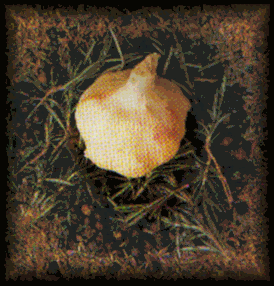Herbs are plants of great antiquity and records exist from the early civilisations of China, the Middle East and the Mediterranean countries giving us clear descriptions of their use and cultivation.

It is not difficult to imagine how our ancestors must have relished the variety of flavours and scents from the collected plants, or how they would have searched for them to improve the flavour of roasted game and fish. It is self-evident when one reads of similar herbal use in widely separated cultures. Neither is it difficult to understand how the medicinal use of herbs might have followed quickly as a by-product of cooking.
Herbs were spread over most of Europe by the conquering Roman legions who had, in turn, learned much of their use from the Greeks. During this superstitious time many herbs were credited with mystical and magical powers; it was believed that angelica, bay and garlic would protect the user against witchcraft, bay had the added advantage of warding off infection. Caraway and coriander were used in love potions, while fennel was held in high regard by the Romans as it supposedly protected the user against venomous bites, made him strong, brave and encouraged long life. As well, there were herbs to guard against nightmares, some to deter vampires and many more to keep lovers faithful.

The Christian monks of the sixth century enlarged the medicinal use of herbs. They became really the first homeopathic specialists and each monastery had a special herb garden from which plants were exchanged and traded between Orders, so developing and improving the herbs. Some of today's great medical centres are direct descendants of these monastery gardens.